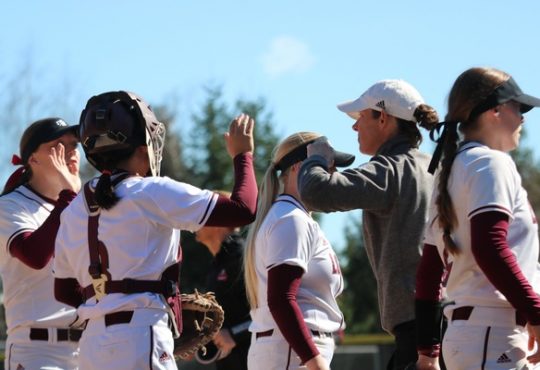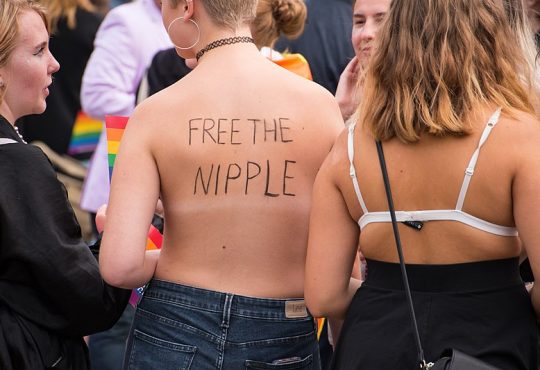Masturbation is a common practice. In a survey run by the Journal of Sexual Medicine, by the age of 16-17 over half of males and about a quarter of females in the sample size said they had masturbated at least once in the past month. In the Journal of Psychology and Human Sexuality, one study of a sample of undergraduate college students said that 98 percent of men and 44 percent of women reported having ever masturbated. But when was the last time you remember having a conversation about it with your peers? It is rather uncommon to have open discussions about sex in general, but even more rare to talk about masturbation.
There is shame attached to masturbation, preventing people from being open about the practice. This isn’t a new development; rather it is a result of many decades of sexual ignorance and teaching children that masturbation is unhealthy and wrong.
However, many studies show that masturbation is a perfectly healthy and personally satisfying practice, and is shown to make people happier and even has health benefits. Why the stigma? Where did it come from? Like I said, there are a lot of residual abstinence teachings that, by association, also make people fearful of masturbation.
This is difficult to circumvent, but is not the most detrimental problem. Most roadblocks preventing people from embracing masturbation are psychological, and I believe that this problem is particularly acute in women.
One of the problems I have encountered is the correlation between being single and masturbation. It is seen as an escape for people who don’t have someone to facilitate a sexual release and are left alone to take care of themselves. This makes it seem like it is for lonely people who cannot find a partner. This is not the case!
The University of Chicago interviewed 3,000 Americans for the National Health and Social Life Survey, and found that a sexless relationship suppressed masturbation. People were more eager to fly solo and experiment with masturbation after having a partner. So all you singles out there shouldn’t let that keep you from going that extra mile by yourself.
Rather, when you have the freedom of being single you should take that time to experiment and find out how to take care of yourself.
Second, selfishness is looked down upon in American culture and I believe that psychologically translates to shame associated with satisfaction and pleasure. People are busy and don’t have time to think about sexual satisfaction nowadays, and this means that when it is time to check up on yourself the idea of masturbation seems like a waste of time, a frivolity that can be pushed aside.
Stopping and taking time to relieve one’s sexual tensions is something that you typically do independently, and that can be hard for some people to grasp (pun intended).
In today’s get-up-and-go society, there are few people who take the time to educated themselves on the benefits of masturbation: it relieves stress, it lowers blood pressure, it helps you sleep, it relieves cramps, and it is a factor in preventing prostate cancer.
Third, there is little to no education and open discourse relating to masturbation while growing up. Even though we live in an age where safe sex practices and personal happiness are being stressed, talking about masturbation is still limited and overlooked. There are huge improvements in sexual education, but not much in the way of embracing masturbation as a regular practice. This means that as people grow older, these old ideas are harder and harder to let go of, and these ideas influence our sexual attitudes for a long time. Most people will never discuss masturbation in an educational setting, which makes it seem abnormal and even dangerous.
It is also difficult to talk about in a less formal setting, even between peers. Junior Emma Spalding, reflecting on the importance of being open in regards to discussing sexual practices like masturbation, stated, “when you talk about [masturbation] people are always hesitant to talk about it. It is usually talked about in a very ambiguous way like ‘oh, IF you do this’ rather than ‘I do this’ showing a reluctance to engage in open discourse.”
There is also a huge discrepancy between women and men and how masturbation should be approached. Don’t get me wrong, while it is statistically true that on average men who do masturbate do it more often than women, women are by no means averse to taking care of themselves. However, despite how widespread the practice of masturbating is between both men and women, women have a much harder time approaching the topic of masturbation.
Junior Allison Drummond muses about the different standards set for men and women in regards to their sexuality. “Men are taught to embrace their sexuality, whereas women are supposed to suppress their sexuality and to not talk about it,” she said.
This is evident through the vocabulary centered on the sexual discourse. For example, there are hundreds of names describing a male masturbating and the very few names for a woman doing the same. Hand job, jack off, jerk off, beat off, rub off, wanking, doing the hand jive, disobeying the Pope, among many other very obscure phallic references. But all I have heard in reference to female masturbation is flicking the bean, creaming and ‘beating around the bush.’ Why is this? Is it that women masturbate less frequently, or merely because it is talked about less?
I often will hear men making references and jokes regarding masturbation in real life and in the media, but almost never hear a woman talk about her masturbation practices. This goes to show that the problem with masturbation shaming is in the discourse, not the practice itself.
Women, traditionally, are considered to be pure or good if they abstain from sexual practices. But if a woman enjoys having sexual intercourse she is labeled a slut. The classic whore/virgin dichotomy. This is shameful, and can stigmatize all sexual practices (like masturbation), not just intercourse. Shame is associated with both being a virgin, as well as having sex, but what about masturbation? There is both the same of being alone, as well as the shame of allowing oneself to succumb to sexual pleasure.
So where are we safe? Where is the middle ground? It is important to let people know that by masturbating, you are maintaining your own wellbeing, and the words we use to talk about masturbation should reflect that.





